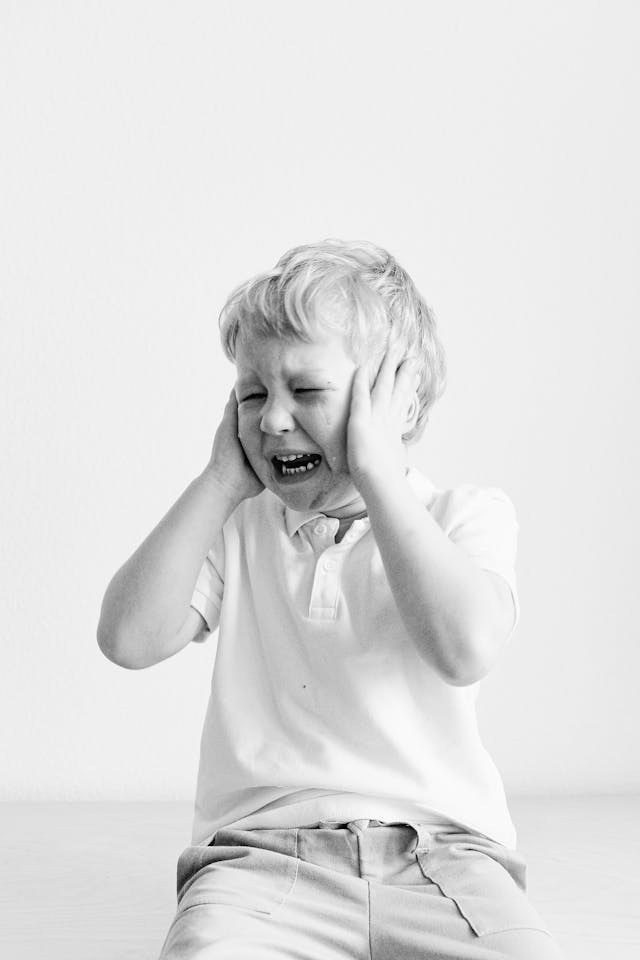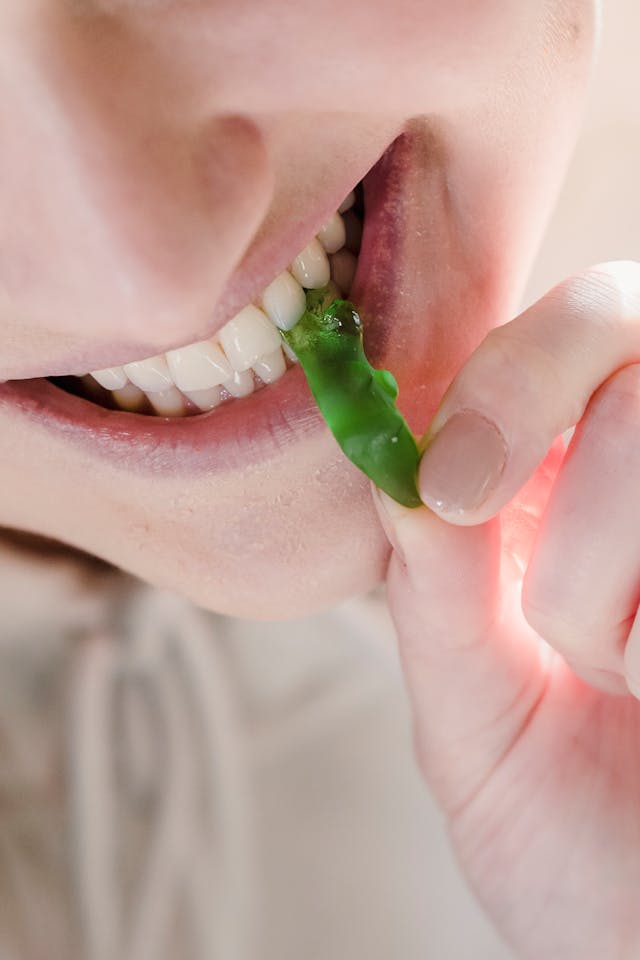 Stephen Geller Katz LCSW-R
Stephen Geller Katz LCSW-R
Misophonia Cognitive Retraining Therapy
 Stephen Geller Katz LCSW-R
Stephen Geller Katz LCSW-RMisophonia Cognitive Retraining Therapy
Misophonia Cognitive Retraining Therapy, as featured on the MTV True Life episode: “I Have Misophonia” premiering Friday, December 16th, 7:00 PM EST. See Clip >
|
|
|
| Moderate to severe anxiety triggered by chewing sounds, including: | ||
|
|
|
You may also be affected by visual stimuli, such as repetitive foot or body movements, fidgeting or movement you observe out of the corners of their eyes. Intense anxiety, rage and avoidant behavior may develop as a result of misophonia.
 * Do you feel your family and friends don’t understand how much you suffer?
* Do you feel your family and friends don’t understand how much you suffer?
* Do you often feel you can just suffer through a social event where there is eating present only to find that you must “escape” before you have a panic attack?
* Do you find that some people are at first understanding and make some efforts not to make the triggering sounds in front of you, but soon forget and constantly have to be reminded, causing you to feel angry, anxious and depressed?
* Are you avoiding social activities that you enjoy because of the misophonia?
* Are you fearful of losing your job and/or is the misophonia effecting your job performance?
You may be a candidate for Misophonia Cognitive Retraining Therapy, or MCRT.
Stephen Geller Katz, LCSW-R, with over 20 years of clinical experience, a New York University graduate, developed Misophonia Cognitive Retraining Therapy and founded Misophonia Cognitive Center™ in response to the growing number of people with Misophonia coming to his private practice from audiologists and ENTs. He discovered that by helping people to retrain and reinterpret the thoughts around their Misophonia, anxiety and depression symptoms began to improve. But even more important so did the Misophonic trigger response.
 If you’re noticing strong emotional reactions to everyday sounds, it’s important to understand the steps to take if you suspect you have misophonia— a condition that affects how the brain processes auditory stimuli. Recognizing the symptoms early can make treatment more effective and prevent further disruption to your personal and professional life.
If you’re noticing strong emotional reactions to everyday sounds, it’s important to understand the steps to take if you suspect you have misophonia— a condition that affects how the brain processes auditory stimuli. Recognizing the symptoms early can make treatment more effective and prevent further disruption to your personal and professional life.
Many people with misophonia react negatively to soft, repetitive noises. If you feel intense frustration, anger, or anxiety when hearing sounds like:
…it may be time to investigate further.
Document the situations where these reactions occur. Take note of:
This journal will be invaluable when consulting a professional.
A clinician who understands misophonia can differentiate it from anxiety, sensory processing disorder, or other mental health conditions. A proper diagnosis is essential for targeted treatment.
Cognitive Retraining Therapy is one of the most effective approaches to reducing misophonia symptoms. This therapy helps you:
Misophonia can be isolating. Explain the condition and share that it’s neurological, not a choice. When those around you understand your experience, they can provide meaningful support by adjusting their behavior or being more empathetic.
Early treatment is crucial. The longer misophonia goes unmanaged, the more entrenched trigger reactions can become. If you’re noticing these signs, take the next step now.
MISOPHONIA COGNITIVE CENTER™
Stephen Geller Katz LCSW-R
19 West 34th Street
New York, NY 10001
646-585-2251
All sessions conducted online
Dr. Katz is Multi-lingual
Understanding how cognitive therapy reduces misophonia triggers is key to managing this often-debilitating condition that causes extreme emotional reactions to everyday sounds. Unlike a mere annoyance, misophonia is a complex neurological issue that can make routine situations feel overwhelming and unmanageable for those affected.

Misophonia is rooted in the brain’s emotional regulation systems. When exposed to particular sounds—like chewing, slurping, or clicking—the brain activates a fight-or-flight response. Over time, these reactions can become conditioned, meaning the brain learns to associate harmless sounds with intense emotional distress.
Cognitive therapy helps individuals examine the thoughts and beliefs that fuel these emotional reactions. A trained therapist works with the patient to reframe how they interpret these sounds and to disrupt automatic emotional responses.
If you find yourself avoiding social situations, struggling to concentrate, or feeling overwhelmed by ordinary sounds, cognitive therapy could be life-changing. Early intervention makes it easier to retrain your brain’s responses and improve daily functioning.
Misophonia doesn’t have to control your life. With cognitive therapy, many people report significant reductions in emotional distress and improvements in their ability to manage triggers.
MISOPHONIA COGNITIVE CENTER™
Stephen Katz LCSW
646-598-2251
Online sessions
Multi-lingual
 Let’s explore the benefits of online therapy for misophonia treatment and how therapy can improve quality of life for individuals struggling with this condition. Misophonia, which translates to a “hatred of sound,” is a neurological condition marked by intense emotional responses to specific everyday noises. For individuals affected by misophonia, seemingly normal sounds—like chewing, tapping, or breathing—can provoke sudden feelings of anger, anxiety, or deep irritation.
Let’s explore the benefits of online therapy for misophonia treatment and how therapy can improve quality of life for individuals struggling with this condition. Misophonia, which translates to a “hatred of sound,” is a neurological condition marked by intense emotional responses to specific everyday noises. For individuals affected by misophonia, seemingly normal sounds—like chewing, tapping, or breathing—can provoke sudden feelings of anger, anxiety, or deep irritation.
Misophonia is often misunderstood, with many people assuming it’s a simple dislike of certain sounds. In reality, it is a neurological condition that involves heightened sensitivity to auditory triggers. Common triggers include repetitive noises such as chewing, pen clicking, or breathing sounds.
Support from loved ones plays a significant role in managing Misophonia. By understanding the condition and avoiding judgment, family members can create a safe and supportive environment. Open communication and education are key to fostering empathy and cooperation.
Seeking professional help is essential for long-term management of Misophonia. Therapy provides individuals with coping strategies, emotional tools, and a pathway to reclaiming their quality of life. Cognitive Retraining Therapy, developed at the Misophonia Cognitive Center™, has shown significant success in reducing trigger responses.
Explore the benefits of online Misophonia therapy. Contact Stephen Katz, LCSW, at the Misophonia Cognitive Center™ now.
MISOPHONIA COGNITIVE CENTER™
Stephen Katz LCSW
646-598-2251
Online sessions
Multi-lingual
This blog explores breaking misophonia myths: facts you need to know and how therapy can improve quality of life for individuals struggling with this condition. Misophonia, which literally means “hatred of sound,” is a condition that causes strong emotional reactions to specific noises. For those living with Misophonia, everyday sounds can trigger feelings of anger, frustration, or anxiety.

Misophonia is often misunderstood, with many people assuming it’s a simple dislike of certain sounds. In reality, it is a neurological condition that involves heightened sensitivity to auditory triggers. Common triggers include repetitive noises such as chewing, pen clicking, or breathing sounds.
Support from loved ones plays a significant role in managing Misophonia. By understanding the condition and avoiding judgment, family members can create a safe and supportive environment. Open communication and education are key to fostering empathy and cooperation.
Seeking professional help is essential for long-term management of Misophonia. Therapy provides individuals with coping strategies, emotional tools, and a pathway to reclaiming their quality of life. Cognitive Retraining Therapy, developed at the Misophonia Cognitive Center™, has shown significant success in reducing trigger responses.
Learn effective coping strategies for Misophonia. Call the Misophonia Cognitive Center™ to start your journey today.
MISOPHONIA COGNITIVE CENTER™
Stephen Katz LCSW
646-598-2251
Online sessions
Multi-lingual
 Misophonia in children is a growing area of concern among parents, educators, and mental health professionals. This neurological condition, characterized by intense emotional reactions to specific sounds, can affect a child’s emotional well-being, academic performance, and social development. While often misunderstood or misdiagnosed, recognizing the early signs of misophonia in children and addressing them with supportive strategies can significantly improve a child’s quality of life.
Misophonia in children is a growing area of concern among parents, educators, and mental health professionals. This neurological condition, characterized by intense emotional reactions to specific sounds, can affect a child’s emotional well-being, academic performance, and social development. While often misunderstood or misdiagnosed, recognizing the early signs of misophonia in children and addressing them with supportive strategies can significantly improve a child’s quality of life.
Misophonia, literally meaning “hatred of sound,” involves strong emotional responses such as anger, panic, or disgust in reaction to specific auditory triggers. These responses are not simply irritations but are intense and involuntary, often affecting daily functioning. In children, the condition may manifest differently than in adults and can often be mistaken for behavioral problems, anxiety, or sensory processing issues.
Children with misophonia are often sensitive to soft, repetitive human-generated sounds. These can include:
The intensity of the reaction can vary, but these sounds often lead to feelings of distress, anger, or even fear. Some children may lash out verbally, cover their ears, leave the room abruptly, or experience anxiety in anticipation of these sounds.
Identifying misophonia in children requires careful observation and an understanding that the child’s reaction is not a behavioral choice but a neurological response. Common symptoms include:
It’s also common for these children to feel embarrassed or ashamed of their reactions, which can lead to social withdrawal or low self-esteem.
Misophonia can impact nearly every area of a child’s life if left unaddressed:
While there is no one-size-fits-all treatment for misophonia, there are many ways parents and caregivers can support their child:
If your child’s misophonia is significantly interfering with daily life, it’s essential to consult a professional who understands the condition. Misophonia Cognitive Retraining Therapy (MCRT), developed by Stephen Geller Katz LCSW-R, is one such approach that can help children learn to manage their triggers and responses more effectively. Early intervention can prevent the condition from worsening and provide children with the tools they need to thrive.
Misophonia is manageable, especially when diagnosed early and approached with empathy and appropriate support. By recognizing the signs and seeking the right help, you can empower your child to navigate their world with greater ease and confidence.
If your child is struggling with misophonia, professional support is available. Stephen Geller Katz, LCSW-R at the Misophonia Cognitive Center™, offers online therapy sessions tailored to children and families.
With decades of experience and fluency in five languages, Dr. Katz provides accessible and inclusive care for clients around the world.
MISOPHONIA COGNITIVE CENTER™
Stephen Geller Katz LCSW
19 West 34th Street
Penthouse Floor
New York, NY 10001
646-585-2251
What are the specific causes and reasons related to misophonia and trigger responses? Misophonia is a neurological condition in which specific sounds—often mundane to others—evoke intense emotional and physiological reactions. These “trigger” sounds can range from chewing and pen clicking to breathing or foot tapping. Understanding the science behind misophonia and how the brain processes these trigger responses is essential for anyone affected by or working with this condition. As research continues to expand, science is uncovering a clearer picture of how misophonia works—and how it can be treated.

Misophonia, which literally means “hatred of sound,” is not just a matter of irritation. It involves an involuntary fight-or-flight response, often accompanied by feelings of anger, anxiety, or panic. While it is not yet officially classified as a standalone psychiatric disorder in major diagnostic manuals like the DSM-5, it is widely recognized by clinicians and researchers as a real and impactful condition.
Recent neuroimaging studies reveal that individuals with misophonia show heightened activity in certain regions of the brain when exposed to trigger sounds.
These neurological patterns help explain why reactions in misophonia are so strong, and why they can feel out of proportion to the actual sound.
Trigger sounds tend to be soft, repetitive, and human-generated. Examples include:
These sounds bypass typical cognitive filtering processes and are instead fast-tracked to emotional and threat-processing centers, leading to the misophonic response.
The body reacts to misophonia triggers with an acute stress response. This includes:
Because this reaction is so intense, many people with misophonia also develop anticipatory anxiety—stress caused not by the trigger itself but by the fear of encountering it.
There is no single known cause of misophonia, but research suggests it is a combination of neurological, genetic, and environmental factors.
One of the most promising treatment approaches is Misophonia Cognitive Retraining Therapy (MCRT), developed specifically for people with misophonia. This therapy combines cognitive-behavioral techniques with sound desensitization and emotional regulation strategies. Over time, it helps the brain form new associations with trigger sounds, reducing the severity of responses.
Misophonia is more than just a strong dislike of certain noises—it is a neurological condition with measurable brain activity patterns and physiological consequences. By understanding the science behind misophonia and its trigger responses, individuals can feel validated in their experience and empowered to seek evidence-based treatment.
If you or a loved one is struggling with misophonia, support is available. Stephen Geller Katz, offers specialized treatment at the Misophonia Cognitive Center™ using proven cognitive retraining techniques.
All sessions are conducted online, and Dr. Katz speaks five languages, making care accessible and inclusive to clients worldwide.
MISOPHONIA COGNITIVE CENTER™
Stephen Geller Katz LCSW
19 West 34th Street
Penthouse Floor
New York, NY 10001
646-585-2251
Knowing how to support a loved one with misophonia can make a profound difference in their quality of life. Misophonia is a neurological condition where specific everyday sounds—like chewing, sniffing, or pen clicking—trigger intense emotional reactions such as anger, panic, or disgust. While it may seem confusing or exaggerated to those unfamiliar with it, misophonia is a very real and distressing condition for those who experience it.
This blog offers actionable, compassionate guidance for friends, family members, and partners who want to help someone living with misophonia feel understood, respected, and supported.

The key to providing meaningful support starts with learning about misophonia. While it’s not yet widely recognized in mainstream mental health classifications, misophonia has been studied and validated by medical professionals as a genuine and often debilitating condition.
By educating yourself about the condition, you demonstrate empathy and validation, which can significantly reduce your loved one’s sense of isolation.
Small changes to your shared environment can make a big difference in reducing stress for your loved one.
Supporting someone with misophonia also means understanding its emotional and social effects. They may feel embarrassed or anxious about eating with others, going to the movies, or attending meetings. Be open to adjusting your shared activities or routines to accommodate their needs.
While there is no single cure for misophonia, several treatments—like Cognitive Behavioral Therapy (CBT) and Misophonia Cognitive Retraining Therapy (MCRT)—have shown promising results. Encourage your loved one to explore these options without pressuring them.
You can also support their self-care efforts:
If your loved one is ready to seek professional support, Stephen Geller Katz, LCSW, offers personalized misophonia treatment through the Misophonia Cognitive Center™. Dr. Katz provides online sessions accessible from anywhere and speaks five languages, making therapy comfortable and inclusive for a wide range of clients.
You can make a difference by guiding your loved one toward resources and solutions that work for them—while remaining patient, informed, and compassionate.
MISOPHONIA COGNITIVE CENTER™
Stephen Geller Katz LCSW
19 West 34th Street
Penthouse Floor
New York, NY 10001
646-585-2251
Coping strategies for living with misophonia are essential for managing the daily challenges that come with this sound sensitivity disorder. Misophonia, characterized by strong emotional reactions to specific trigger sounds such as chewing, breathing, or tapping, can significantly impact mental well-being, relationships, and overall quality of life. While there’s no universal cure, there are practical and effective ways to reduce the emotional distress associated with the condition.
This blog explores various coping strategies—both short-term and long-term—that can help individuals with misophonia regain control and live more comfortably.

The first step in managing misophonia is identifying your personal sound triggers. Awareness is a powerful tool, and recognizing the specific noises that provoke emotional reactions helps you prepare and respond more effectively.
When a trigger occurs, having go-to coping techniques can help you navigate the moment without escalating the emotional response.
Building resilience against triggers and lowering emotional reactivity takes consistent practice. These strategies focus on long-term improvement:
CBT helps reframe the thought patterns that contribute to the intensity of misophonia reactions. It teaches clients how to challenge irrational beliefs (e.g., “I can’t function if I hear that sound”) and replace them with balanced, realistic perspectives.
This specialized therapy, developed specifically for misophonia, uses gradual exposure, emotional regulation training, and cognitive restructuring to reduce trigger sensitivity over time.
Mindfulness practices teach individuals to observe their reactions without judgment. With regular meditation, you can learn to pause before reacting emotionally to a trigger sound and reduce the body’s stress response.
Making small changes to your environment can help minimize exposure to triggers:
Taking care of your body and mind creates a foundation for resilience. Important self-care steps include:
Living with misophonia can feel isolating, but educating loved ones can foster understanding and reduce conflict.
If misophonia is interfering with your daily life, professional guidance is crucial. Stephen Geller Katz, LCSW, founder of the Misophonia Cognitive Center™, offers specialized treatment plans to help you manage triggers, reduce stress, and reclaim your life. Dr. Katz offers all sessions online, providing global accessibility to expert care. He also speaks five languages, making therapy more inclusive and personalized.
MISOPHONIA COGNITIVE CENTER™
Stephen Geller Katz LCSW
19 West 34th Street
Penthouse Floor
New York, NY 10001
646-585-2251
The connection between misophonia, anxiety, and depression is a critical area of understanding for individuals affected by this sound sensitivity disorder. Misophonia—a condition where certain everyday sounds trigger intense emotional responses such as anger, panic, or disgust—can lead to chronic stress and avoidance behaviors. Over time, these symptoms can evolve into more severe psychological conditions, including anxiety disorders and depression.
In this blog, we’ll explore how misophonia is linked to anxiety and depression, how these conditions influence one another, and what treatment strategies are available to break the cycle.

Misophonia doesn’t simply cause irritation or annoyance; it often results in powerful emotional and physical responses. People with misophonia may experience a “fight or flight” reaction when exposed to trigger sounds such as chewing, breathing, or tapping. Over time, the daily stress of anticipating or avoiding these sounds can wear down a person’s mental health.
These emotional consequences are often precursors to anxiety and depression, especially when misophonia is left untreated.
Anxiety and misophonia are closely intertwined. For many individuals, the fear of encountering trigger sounds leads to chronic anxiety. This fear can manifest as:
The constant pressure of avoiding triggers creates a cycle of anxiety: the more a person fears and avoids certain sounds, the more intense the reaction becomes when those sounds are eventually heard.
Depression often follows prolonged misophonia-related stress. The condition can make individuals feel hopeless, frustrated, or even ashamed. Social isolation, reduced participation in daily activities, and strained relationships can contribute to feelings of sadness and worthlessness.
Signs that misophonia may be contributing to depression include:
In some cases, the depression may become more debilitating than the misophonia itself, which is why early intervention is essential.
Addressing all three conditions together offers the best path to relief. Treatments that can help include:
It’s important to work with a therapist familiar with misophonia who can create an integrated treatment plan tailored to your symptoms and experiences.
Stephen Geller Katz, LCSW, of the Misophonia Cognitive Center™, specializes in treating misophonia and its mental health effects using evidence-based, individualized strategies. With decades of clinical experience, Dr. Katz offers online sessions so that treatment is available no matter where you live. He also speaks five languages, helping clients from diverse backgrounds find meaningful support.
If you are experiencing misophonia along with symptoms of anxiety or depression, know that you’re not alone—and that effective help is available.
MISOPHONIA COGNITIVE CENTER™
Stephen Geller Katz LCSW-R
19 West 34th Street
Penthouse Floor
New York, NY 10001
646-585-2251
In this blog, we’ll explore some of the most common misophonia triggers and outline practical strategies to manage them. Misophonia is a sound sensitivity condition where certain everyday noises provoke intense emotional responses, such as anger, panic, or disgust. These sounds, known as “triggers,” vary from person to person but often involve human-generated, repetitive noises. For people living with misophonia, these triggers can significantly impact quality of life—at work, in relationships, and in public spaces.

Triggers are specific sounds that cause an overwhelming emotional or physical reaction. These reactions may feel automatic and are often disproportionate to the situation. For many people with misophonia, it’s not just the sound itself, but the context or the person making the sound that heightens the response.
 Below are the types of sounds frequently reported as misophonia triggers:
Below are the types of sounds frequently reported as misophonia triggers:
The root cause of misophonia is still being researched, but studies show that people with the condition have heightened activity in areas of the brain responsible for emotion regulation and threat detection—particularly the anterior insular cortex. This suggests that misophonia may be a neurological response where the brain misinterprets certain benign sounds as threats.
Managing misophonia requires a combination of environmental adjustments, mental health strategies, and in some cases, professional treatment. Here are some effective techniques:

If triggers are significantly affecting your quality of life, it’s time to consult a specialist in misophonia treatment. Professional support can help you develop personalized strategies to manage your triggers, regain control, and reduce emotional distress.
Stephen Geller Katz, LCSW-R, is a leading specialist in misophonia treatment and the founder of the Misophonia Cognitive Center™. His targeted approach, including Cognitive Retraining Therapy and mindfulness-based techniques, helps clients manage their sound triggers effectively.
Dr. Katz offers fully remote therapy sessions, so you can receive expert care from anywhere in the world. He also speaks five languages, making treatment more accessible for diverse individuals.
MISOPHONIA COGNITIVE CENTER™
Stephen Geller Katz LCSW-R
19 West 34th Street
Penthouse Floor
New York, NY 10001
646-585-2251